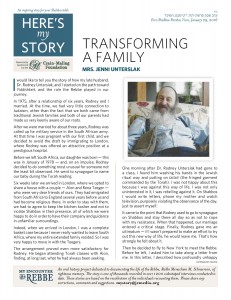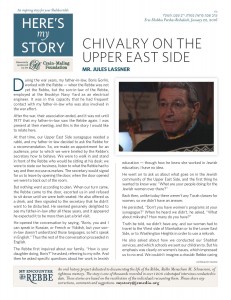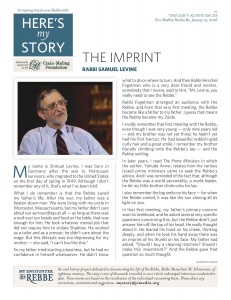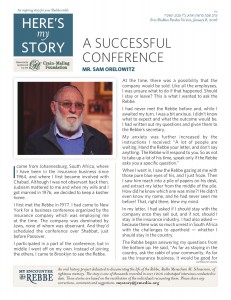Transforming a Family
I would like to tell you the story of how my late husband, Dr. Rodney Unterslak, and I started on the path toward Yiddishkeit, and the role the Rebbe played in our journey.
In 1975, after a relationship of six years, Rodney and I married. At the time, we had absolutely no connection to Judaism, other than the fact that we both came from traditional Jewish families and both of our parents had made us very keenly aware of our roots.
After we were married for about three years, Rodney was called up for military service in the South African army. At that time I was pregnant with our first child, and we decided to avoid the draft by immigrating to London, where Rodney was offered an attractive teaching position at a prestigious hospital.
Before we left South Africa, our daughter was born – this was in January of 1978 – and, on an impulse, Rodney decided to do something most unusual for someone not the least bit observant. He went to synagogue to name the baby during the Torah reading.
Six weeks later we arrived in London, where we opted to share a house with a couple – Alon and Rena Teeger – who were very dear friends of ours. They had emigrated from South Africa to England several years before us and had become religious there. In order to stay with them, we had to agree to keep the kitchen kosher and not to violate Shabbos in their presence, all of which we were happy to do in order to have their company and guidance in unfamiliar surroundings.
Indeed, when we arrived in London, I was a complete basket casebecause I never really wanted to leave South Africa, where my entire extended family resided. So I was very happy to move in with the Teegers. (more…)








